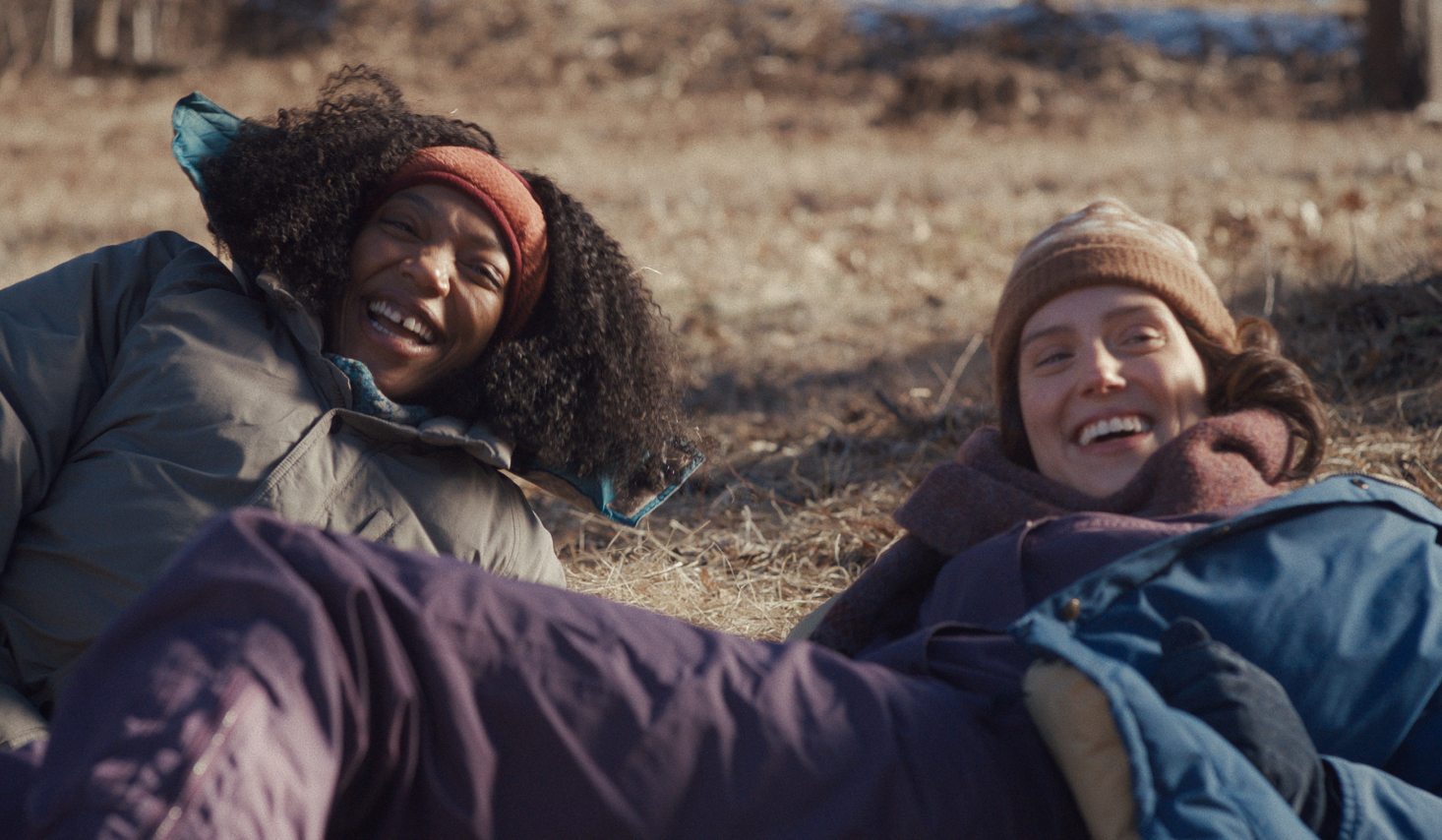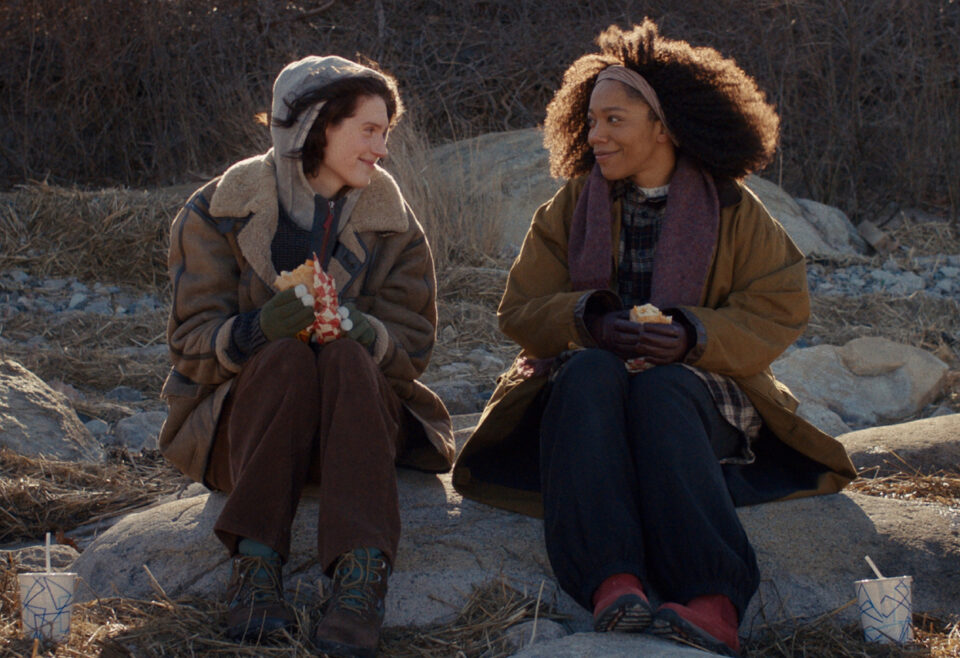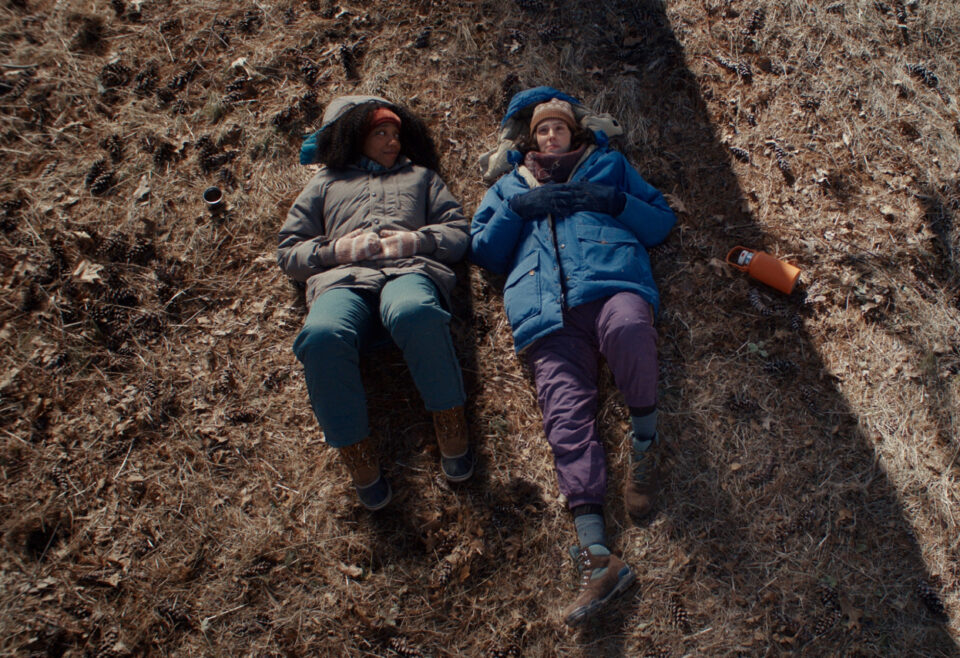
Sorry, Baby is a point blank exceptional piece of cinema. What’s perhaps most striking about it is the number of ways in which it is exceptional, how it hits the brightest peaks and darkest troughs of life with poignancy and accuracy again and again. Most simply, Sorry, Baby is the story of how a post-grad student (just about) gets over being sexually assaulted by their thesis supervisor. It’s also a savage yet delicately humorous critique of how SA is reported and dealt with by institutions (by brash, unsympathetic doctors and women in admin roles who find loop holes to avoid taking action, and offer empty assurances that they “know what you’re going through”). It’s a beautiful depiction of unflinching friendship in the face of horrific trauma and mental turmoil, as well as a harrowing portrait of a person shattered by the actions of an all too familiar kind of man. On a more social level, it also manages to be a shining portrayal of the half-sentences and half-nonsense that best friends use to communicate, near impossible to write down but captured perfectly by writer, director and star Eva Victor as main character Agnes, and their best friend Lydie (the quiet highlight of the film, a superb Naomi Ackie). It’s also, astonishingly, Victor’s directorial debut.
For all these things that Sorry, Baby is, it is also joyfully and unforgettably gay. And I mean that in the broadest sense of the word, including all of our alphabet siblings — our main character, Agnes, very quickly gives a fresh yet familiar monologue on dissociating during sex with men, and goes on to develop discomfort in fixed, gendered boxes, in a way that feels reflective of the feelings non-binary writer/director/actor-playing-Agnes, Eva Victor. Agnes’ lesbian best friend, Lydie, in a 10/10 flashback utters the classic gay-and-doesn’t-know-it line: “I don’t even fuck guys with my eyes open anymore, I just close my eyes and imagine women.” Lydie finds love and ultimately a family in the arms of her non-binary partner Fran (the fabulously named E.R. Fightmaster, yes, really). Lydie and Agnes’ reunion then involves a dinner with two of their gay male classmates, whose sexuality is a non-issue in such a refreshing way. This flourishing of identities exists within the film, as they exist in our lives, without being challenged, and without being mined for plot devices. The characters, like us, have problems and turmoil, but not necessarily related to their gender and sexuality, and that’s inspiring to see represented on screen.
Almost as inspiring as Lydie and Fran’s near-perfect relationship, their love, happiness and gayness are very deliberately intertwined by Agnes when she asks “are you happy being gay and in love?”, as if it’s important to Victor to tie those things together – to make a point that that is very possible. Of course we know it is, but depictions of it are sorely lacking. Their loving wholesome relationship and adorable child provide welcome respite from the darker more difficult aspects of the plot, both for the audience and for Agnes, and run counter to prevailing queer narratives in film and television which – as I’m sure we’re all aware – tend to be veered towards trauma and pain. A 2022 YouGov poll found that British LGBTQIA+ were twice as likely to see themselves portrayed negatively in media than their straight counterparts – in Sorry, Baby queerness is not the source of suffering, it’s not why their lives are complex, but a salve, it’s hope, joy, and new beginnings.


“Maybe I should have his babies too, and then they can be brothers” is Victor’s smooth punchline to a potentially difficult conversation about donor sperm between two friends. Sorry, Baby repeatedly refuses to toe the line on “queer narratives”. Donors and IVF? Chill. Funny, even. Non-binary parent of that child? Also chill, barely mentioned. The result is a film that glides through topics other films would turn into whole plots, and allows its queer relationships to shine and flourish. They say you can’t be what you can’t see, but what use is that if you can’t see a happy version of yourself? What if the only representation you’re offered is people like you who are desperately struggling? Is representation helpful if it’s always negative? In the ocean of negative and traumatised depictions of queerness from film to mainstream media, Sorry, Baby is a small step but a step in the right direction. It might not be a “happy” film, but it lets queerness be a source of joy and that’s important.
In Agnes, who never explicitly recognises her queerness in the film, queer joy is offered to the audience: in seeing themselves playfully filling out the space between M and F on an official form, Agnes is a hopeful mirror for those figuring out their identity and an invitation to step into it. Agnes says repeatedly, “I can’t see myself getting older” – finally landing on a heavily delivered “I can’t see myself”. Eva Victor, being non-binary, is pointing out a lack of relatable non-binary representation in media, something they attempt to change through Fran, and also the wider issue of more relaxed, happier queer representation in media, a challenge that the whole film rises to. Non-binary representation should be more than blue hair and septum piercings, and queer representation should include families, aging and rock-solid friendships.
The relationship between Lydie and Agnes is easily the most important in the film. Perhaps not the most obvious queer relationship, but you can’t tell me relationships between a lesbian and her bestie isn’t a queer relationship. Lydie is Agnes’ rock, her unwavering support. When Agnes comes home with lighter fluid and a dazed look on her face, Lydie immediately offers to set fire to Agnes’ attacker’s office. Is your bestie even your bestie if they’ve never offered to commit arson for you? If you don’t already have one, you all need a fiercely loyal lesbian bestie willing to do jail time for us. Maybe arson is the extreme end of the scale, but we all need a lesbian that will move heaven and earth for us.
Sorry, Baby is now streaming exclusively on MUBI. Watch with 30 days free.